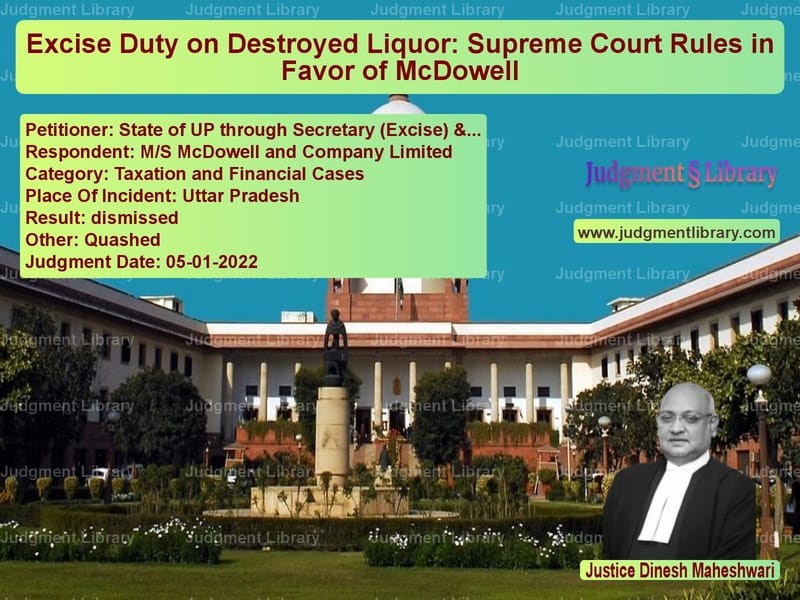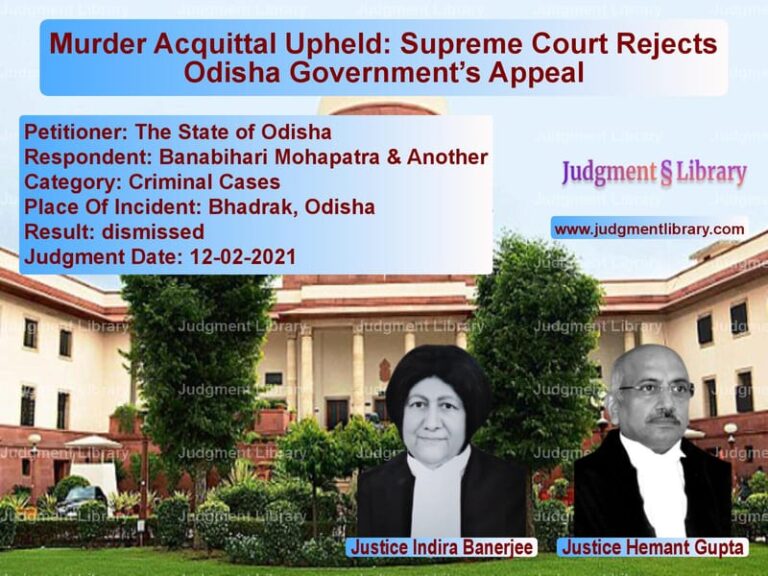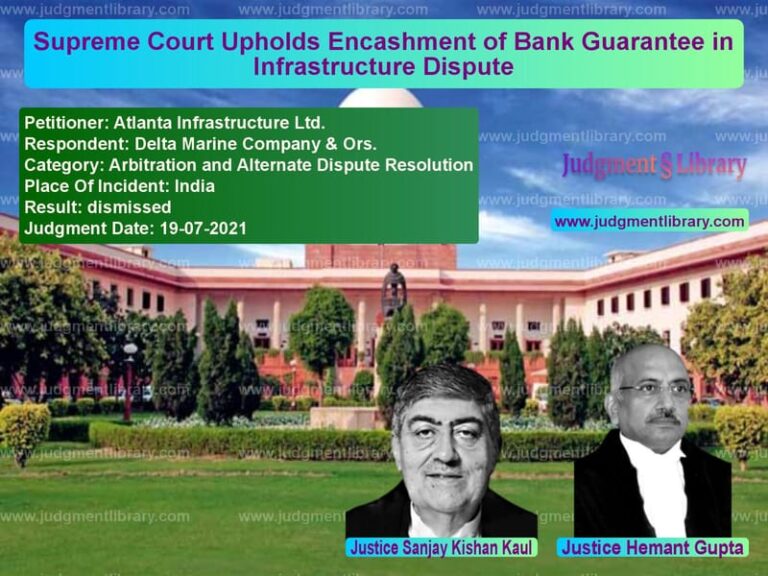Excise Duty on Destroyed Liquor: Supreme Court Rules in Favor of McDowell
The case of State of UP through Secretary (Excise) & Ors. vs. M/S McDowell and Company Limited
raises crucial legal questions regarding excise duty liability on liquor that was destroyed in a fire.
The Supreme Court examined whether the state government could demand excise duty on liquor that had
been completely lost due to unforeseen circumstances.
Background of the Case
The case originates from an incident where a fire broke out in the premises of McDowell and Company Limited,
leading to the destruction of a significant quantity of liquor stored in the godown. Following the incident,
the State Excise Department issued a demand for excise duty on the lost liquor, citing statutory obligations.
The company challenged the demand, arguing that it was unlawful to levy tax on goods that had ceased to exist.
The High Court ruled in favor of McDowell, prompting the State to appeal before the Supreme Court.
Petitioner’s Arguments
The petitioners, represented by the State of UP, argued the following:
- Excise duty is payable at the moment liquor is manufactured, regardless of whether it is ultimately sold or destroyed.
- Under the relevant excise laws, duty is levied on production, and loss due to fire does not exempt the company from its statutory liability.
- The respondent company failed to take adequate precautions to prevent the fire, thereby failing in its duty to safeguard excisable goods.
- The loss of liquor does not affect the State’s right to collect excise duty.
Respondent’s Arguments
The respondent company, McDowell and Company Limited, strongly opposed the state’s demand. Their primary arguments were:
- The fire was an accident beyond their control, and the liquor was completely destroyed.
- Since the liquor was never sold or consumed, no excise duty should be levied.
- The state’s demand contradicts fundamental taxation principles, as tax cannot be imposed on non-existent goods.
- The High Court had previously ruled in favor of the company, stating that liability does not arise for destroyed goods.
- They cited case laws that confirm excise duty is a tax on consumption, not mere existence of goods.
Key Legal Issues Considered
- Does excise duty apply to goods that have been lost due to an accident?
- Can the state government enforce tax collection on destroyed products?
- What are the responsibilities of companies in securing excisable goods?
Supreme Court’s Observations
The Supreme Court extensively analyzed the legal framework and previous case laws. The Hon’ble Court observed:
“Excise duty is a tax on the manufacture of goods, not necessarily on their sale. However, if goods cease to exist before reaching the consumer, the very basis of taxation is eliminated.”
The Court also noted that:
- The tax authorities cannot collect duty on non-existent goods.
- Force majeure events, such as fires, must be considered when imposing financial liabilities.
- The state’s excessive control over excisable goods does not automatically create tax liability on accidental losses.
- Excise laws must be interpreted in a way that aligns with fairness and equity.
Final Judgment
The Supreme Court ruled in favor of McDowell and Company Limited and dismissed the state’s appeal.
The excise duty demand was quashed, with the Court holding that duty cannot be imposed on goods that have been completely destroyed by an accident.
The Hon’ble Supreme Court held:
“Taxing something that has been entirely lost to an unforeseen event amounts to an unreasonable financial burden.
The principle of fairness in taxation dictates that the State cannot demand duty on goods that were never sold or consumed.”
Significance of the Judgment
This ruling reinforces key principles of taxation and excise duty law:
- Excise duty applies only to goods that enter the taxable stream.
- Accidental destruction of goods does not create tax liability.
- Manufacturers should not be held responsible for events beyond their control.
- Excise laws must be interpreted in a way that aligns with fairness and justice.
- The State cannot impose a financial burden that contradicts established taxation principles.
This judgment provides a crucial precedent for excise duty cases, ensuring that companies are not unfairly taxed for unavoidable losses.
Petitioner Name: State of UP through Secretary (Excise) & Ors..Respondent Name: M/S McDowell and Company Limited.Judgment By: Justice Dinesh Maheshwari.Place Of Incident: Uttar Pradesh.Judgment Date: 05-01-2022.
Don’t miss out on the full details! Download the complete judgment in PDF format below and gain valuable insights instantly!
Download Judgment: state-of-up-through-vs-ms-mcdowell-and-com-supreme-court-of-india-judgment-dated-05-01-2022.pdf
Directly Download Judgment: Directly download this Judgment
See all petitions in Tax Refund Disputes
See all petitions in Banking Regulations
See all petitions in Income Tax Disputes
See all petitions in Judgment by Dinesh Maheshwari
See all petitions in dismissed
See all petitions in Quashed
See all petitions in supreme court of India judgments January 2022
See all petitions in 2022 judgments
See all posts in Taxation and Financial Cases Category
See all allowed petitions in Taxation and Financial Cases Category
See all Dismissed petitions in Taxation and Financial Cases Category
See all partially allowed petitions in Taxation and Financial Cases Category







